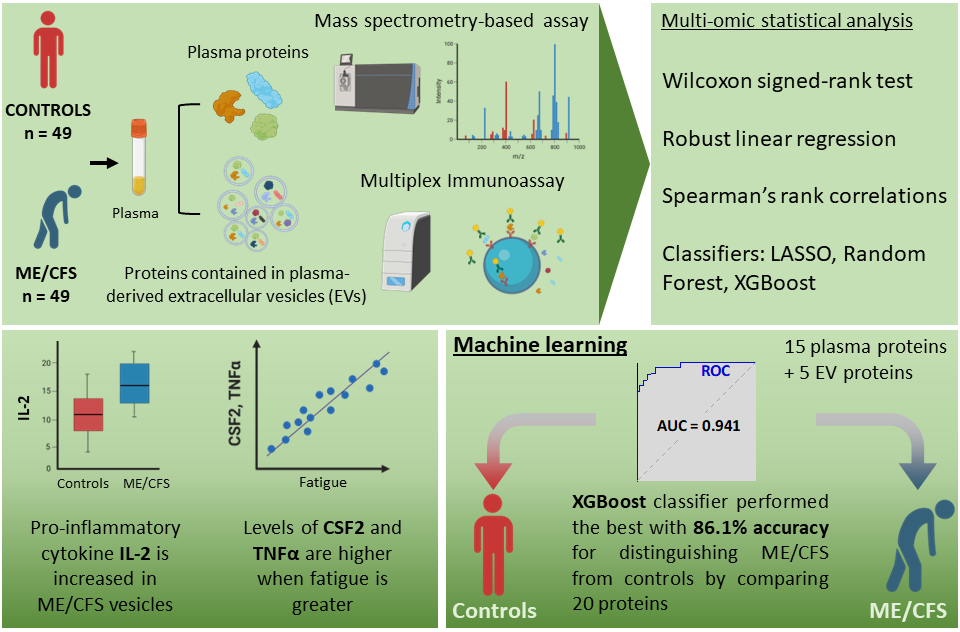@Hoopoe commented about this paper in a Covid-related thread. Noting that increased SERPINA5 levels positively correlated with higher SF-36 (ie better functioning / less disability) the authors had this comment in the discussion —
Ref 70 is Pathway-focused genetic evaluation of immune and inflammation related genes with chronic fatigue syndrome (2015, Human Immunology) which @dreampop noted up-thread in comment #14. I don't think we have a thread for that paper as it's from 2015, but it also used Fukudu/CDC 1994. It may be worth re-looking at it, given some of the coagulation pathologies more recently suggested in LC.
In brief though, that paper said —
SERPINA5 is a secreted serine protease inhibitor whose functions are not completely understood. It was originally identified as an inhibitor of the anticoagulant protease-activated protein C. While this fact suggests that higher SERPINA5 might increase coagulation, an in vitro study demonstrated that SERPINA5 can serve as both an anti-coagulant and a pro-coagulant depending on the presence of thrombomodulin. Platelets contain SERPINA5 mRNA and can also take up the protein from the external milieu. Our finding of a correlation of ME/CFS health status with a protein involved in hemostasis may be relevant to the recent findings of activated platelets and microclots in ME/CFS, as well as altered platelet gene expression profiles. Furthermore, variants in the SERPINA5 gene have previously been associated with ME/CFS [70].
Ref 70 is Pathway-focused genetic evaluation of immune and inflammation related genes with chronic fatigue syndrome (2015, Human Immunology) which @dreampop noted up-thread in comment #14. I don't think we have a thread for that paper as it's from 2015, but it also used Fukudu/CDC 1994. It may be worth re-looking at it, given some of the coagulation pathologies more recently suggested in LC.
In brief though, that paper said —
rs6112 [C/T] in SERPINA5 was also associated with the number of CFS symptoms (p = 8.1 x 10-4 ).
Some of the microRNAs impacted by CFS associated SNPs include [...] and hsa-miR-1258 by rs9113 [C/T] in SERPINA5. A missense variant in SERPINA5 (rs6115 [A/G]) was also associated with CFS. Since these SERPINA5 variants are not in LD, they may confer independent risk for CFS. SERPINA5, an inhibitor of activated protein C, is located in chromosome 4
Last edited:



